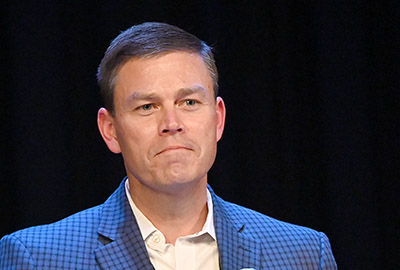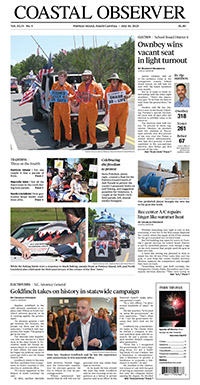Education
District tax capacity will cover all options for pay raises

Funding employee pay raises and additional staff in the Georgetown County School District will leave a $3.1 million shortfall in the budget for the coming year.
But the school board learned this week that it can cover that with a 7.3 percent tax increase, equal to a little over $50 for every $100,000 of value for commercial property and second homes.
That would still leave the district with the ability to raise additional revenue in property taxes in the future.
District officials say the raises would help retain staff who may be recruited by nearby districts.
Georgetown County is facing similar pressures, but, unlike the school district, it is running into the tax cap imposed on local governments by state law.
The last time the district raised the tax rate for operations was for the 2019 fiscal year. State law limits the annual increase to the combination of the federal Consumer Price Index and local population growth. (That totals 5.4 percent this year.) But the law also allows jurisdictions to tap any unused increases from the two prior years.
That gives the school district the ability to raise its tax rate to 11.5 mills, which would generate more than $4 million.
It would only require 8.4 mills to raise the projected $3.1 million needed for its current requests.
That increase would not apply to owner-occupied homes, which are exempt from property tax levied to fund school operations.
Whether the school board decides to fund all or a portion of the requests hinges in part on the state budget.
The legislature adjourned last week without approving a budget, so the district has no idea how much funding it will get from the state.
The different versions of the budget approved by the House and the Senate are now under review by conference committees. A decision is expected in mid-June.
“In the meantime, we felt like we needed to go ahead and have a plan in place,” Lisa Johnson, the district’s assistant superintendent for finance, told the school board this week. “We chose the more conservative one.”
Mandated increases, which total more than $2.86 million, include:
• step pay raises for teachers and bus drivers;
• salary increases for teachers and bus drivers to the state minimum;
• a 1 percent increase to the employee retirement fund;
• an 18 percent increase to the health insurance premium.
Johnson told the board that is the largest increase in health insurance in many years.
Requested increases, which total more than $3 million, include:
• step pay raises for administrators, classified staff and nurses;
• an increase in salary scales for administrators and for custodians, food service workers and instructional assistants;
• an increase in pay for substitute teachers.
Superintendent Keith Price said the state is mandating raises for bus drivers, and the district is also trying to include other workers.
“In every classification of employee, we are competing with other districts in the nearby area with those salaries and with those pay amounts,” Price said. “That’s why we are constantly doing comparisons to make sure we are in the ballpark, but also trying to work to get ahead, if we can, so that we can remain competitive.”
Many of the requested items came from requests submitted by school principals and district staff.
“There’s a lot of merit in the things that are being asked,” Price said. “But everything comes with a cost.”
If the board approves the district’s budget before the legislature approves the state budget, the board might be called upon to amend its budget.
Johnson also said there could be more mandates for school districts in the final version of the state budget.
“There’s just so many questions in Columbia as to which direction they’re going to go,” she added.
The school board will dive deeper into the proposed fiscal 2023 budget at its next meeting on June 7.
“Hopefully we’ll have some more definite numbers for you,” Johnson said.
Price said district staff have been reviewing suggestions from board members and requested items in the budget and are making “tweaks.”
“We will keep notes on the feedback and keep bringing revised presentations based on your feedback,” Price told the board. “So if you have any other thoughts or ideas between now and the next meeting, feel free to share those and we’ll have another presentation the next time we come together.”
Johnson asked the board members to bring their suggestions and input on what budget requests to fund to that meeting to guide her and her staff.




